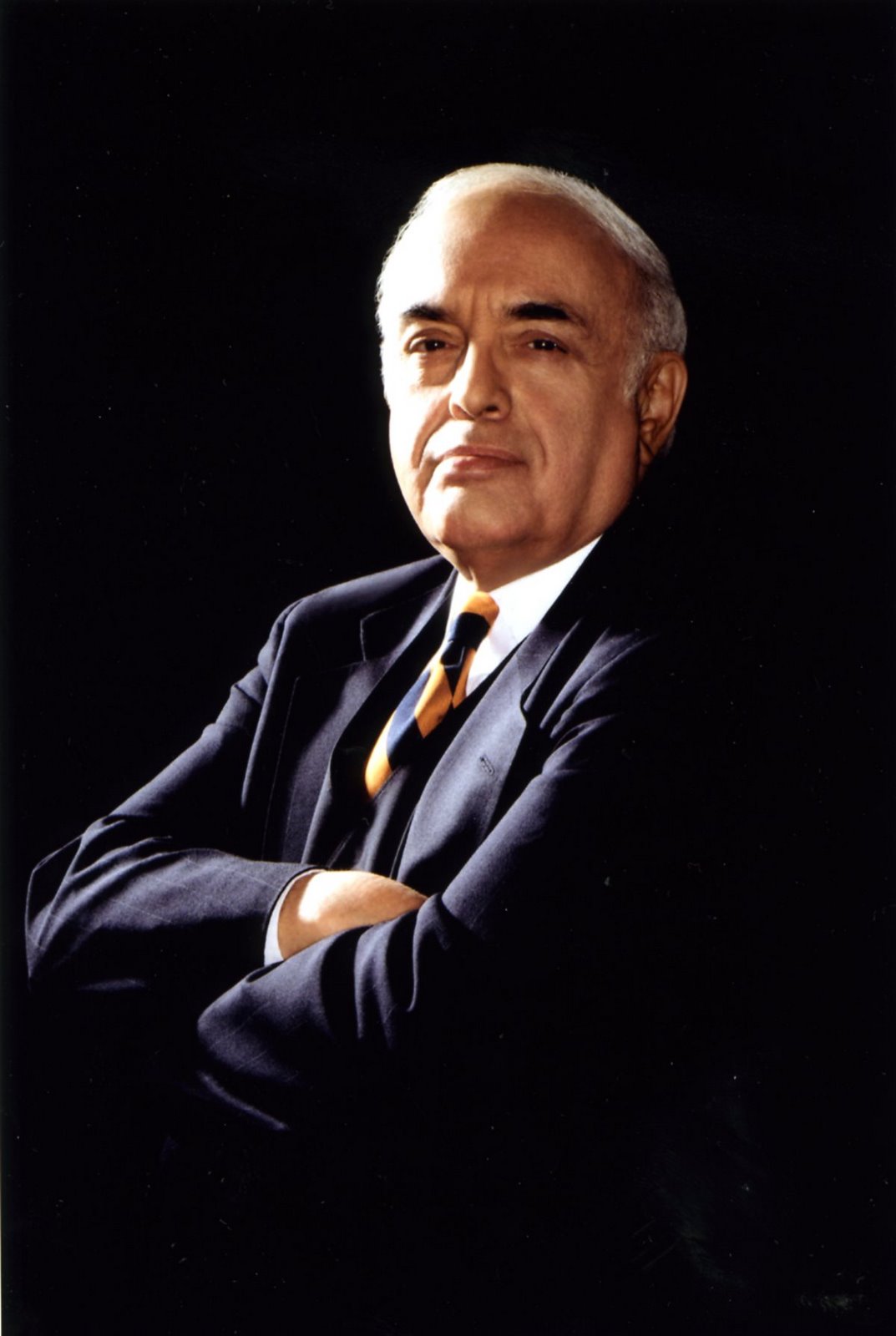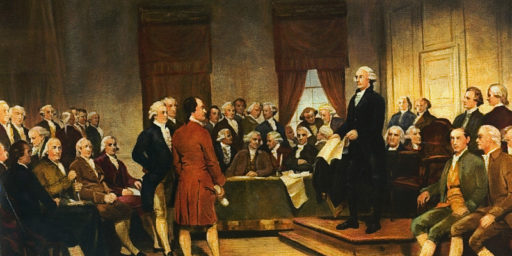Novak on Plame Leak
Bob Novak recounts the details of his meeting with Richard Armitage wherein he learned of Valerie Plame’s CIA identity in his new autobiography, The Prince of Darkness. His newspaper, The Chicago Sun-Times, has an excerpt:
It is important to note that Armitage reached out to me before Joe Wilson went public on the New York Times op-ed page and on “Meet the Press” with an account of his Niger report that he said contradicted 16 words in Bush’s January 2003 State of the Union address: (“The British government has learned that Saddam Hussein recently sought significant quantities of uranium in Africa.”)
[…]
I then asked Armitage a question that had been puzzling me but, for the sake of my future peace of mind, would better have been left unasked. Why would the CIA send Joseph Wilson, not an expert in nuclear proliferation and with no intelligence experience, on the mission to Niger?
“Well,” Armitage replied, “you know his wife works at CIA, and she suggested that he be sent to Niger.” “His wife works at CIA?” I asked. “Yeah, in counterproliferation.”
He mentioned her first name, Valerie. Armitage smiled and said: “That’s real Evans and Novak, isn’t it?” I believe he meant that was the kind of inside information that my late partner, Rowland Evans, and I had featured in our column for so long. I interpreted that as meaning Armitage expected to see the item published in my column.
It’s noteworthy, too, that Armitage asked for the meeting after having rebuffed previous requests. Rather clearly, then, leaking Plame’s role in sending her husband to Niger was the primary purpose of the meeting rather than an off-the-cuff revelation.
UPDATE: Commenter Spencer thinks I’m reading too much into this and, upon re-reading the column, I think he’s right.
Novak’s account makes it seem that Armitage was eager to get the information out and was pleased with himself for doing so. Still, Novak writes, “the last week of June 2003, Armitage’s office called to agree unexpectedly to my request and set up the appointment for July 8.” The Wilson op-ed that triggered the controversy was published July 6. So, while Armitage may well have gone into the meeting with a plan to push the Plame-Wilson connection to Novak, it’s unlikely that that’s why he agreed to it in the first place in late June.
UPDATE: Then again, as an emailer reminds me, “the genesis of the Plame affair wasn’t Wilson’s July 6 op-ed. It was a Nick Kristof column in May and a Walter Pincus story in June, both of which relied on Wilson as an anonymous source.” Indeed, the timeline (forgive the bias of the source; it’s the most complete one I can find) makes clear that there was much scrambling within at least the Vice President’s office that started in very early June.
There’s less concrete evidence as to the timing within the State Department. Then again, Armitage was never put on trial.




How in the world do you read this into the article?
The article clearly states that they talked about other things until in the middle of the meeting Novak brought it up.
There is nothing in the article that states why Armitage wanted to have the meeting.
You are reading what you want to out of the article, not what it says.
I’m with spencer here. There seem to be a few missing logical steps between the information provided and the conclusion reached.
Your update seems to miss the point Spencer was making, which has nothing to do with the timing of the interview and thus would not be refuted by the observation about the Kristof column made by your e-mailer. And if the Kristof column were what made Armitage agree to speak with Novak — something of which there is absolutely no evidence — why would he wait two months to respond to the column? (leaving aside the fact that Armitage said nothing about Plame until asked why Wilson was sent)
Indeed; on the other hand, he didn’t represent someone that could be dragged in front of a show trial so as to win political points in the next election.
I’m with James on this one.
Armitage had been, in Novak’s words, in rebuffing repeatedly requests for a meeting. Since that point was the only substance of any consequence contained in the meeting, it had to be the purpose of the meeting.
The comment only came up as a result of a question Novak says was asked significantly into the conversation. I retrospect that comment was clearly the most substantive of the conversation, that does not mean it was viewed as such by either man at the time.
The prosecutor is a Republican appointee of a Republican.
You seem to feel that republicans are all monolithic, that they’re all in lockstep, like democrats.
Are you serious? You actually think that Fitzgerald (Republican and Republican appointed) pursued this case solely to sabotage the Republicans in the 2008 election. What is your evidence in support of this frankly ridiculous contention?
Do you really think it is the Democrats who have been most effective in enforcing party loyalty over the past decade?
Quite.
Without any question in my mind. Until, that is, just recently. As it stands right now, they have a full rebellion on their hands, and if anyone thinks they’re going to be able to pull a victory of the rebellion, they’re sadly mistaken.
.
When we see that the only conviction out of this entire affair had nothing whatsoever to do with the original crime, and that the original criminal ala Richard Armatage… you know.. the guy who actually DID the leaking…is still walking free… I think it’s clear there was some political motivation, at least. I think it should also be investigated as to whether not Mr. Fitzgerald supported our actions in Iraq.
To
you respond
Where have you been for the last ten years?
The nature of perjury and obstruction of justice is that they prevent effective prosecution of crimes. You see that is why they are crimes.
and then?
Ah. And what of why they supposedly started this witch hunt? What of the leaker? You remember, him, right?
There was more than one leaker.
Libby also leaked the information before it was published. It appears what he did was at the behest of Cheney then he lied under oath and obstructed justice to protect him and probably Rove (also a leaker of this information).
Why is it you have no outrage over the outing of a covert CIA operative?